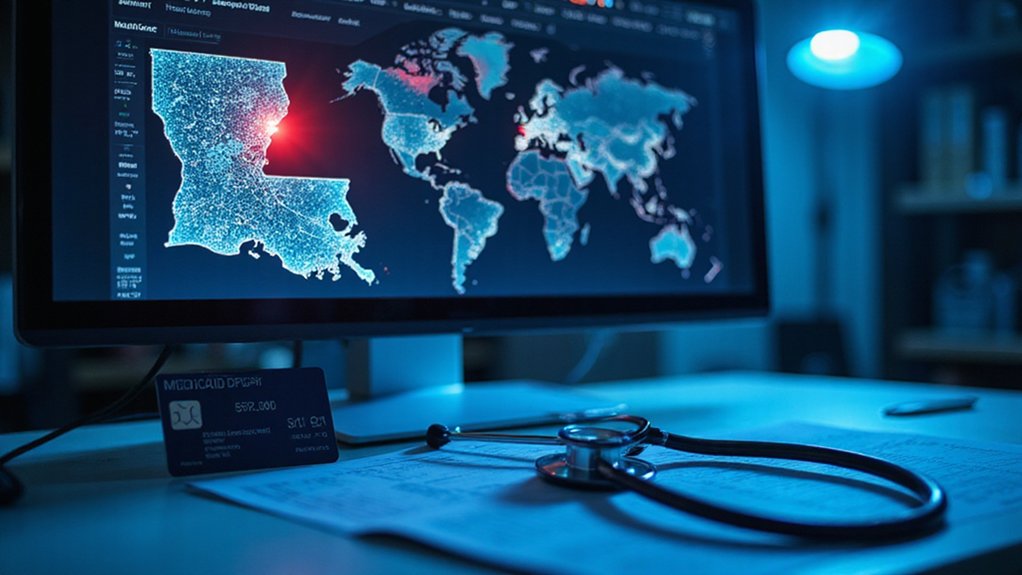Louisiana has implemented AI systems to combat Medicaid fraud that costs billions annually. The technology identifies suspicious patterns in millions of daily claims with over 90% accuracy, far exceeding traditional detection methods. This AI solution considerably reduces false positives and shortens response time from over a year to mere days. Money saved from fraud prevention is being redirected to patient care. The state’s innovative approach offers a model for other programs nationwide.
How can technology help fight the massive problem of healthcare fraud? Louisiana’s Medicaid program has turned to artificial intelligence to combat widespread fraud that costs taxpayers billions each year. The state is now using advanced AI systems to spot suspicious patterns that human reviewers might miss.
Medicaid fraud accounts for up to 10% of the $4 trillion U.S. healthcare market. With over 4.5 million claims processed daily, traditional detection methods can’t keep up with the sheer volume. Rule-based systems only catch known fraud patterns, while manual audits are slow and prone to error.
The new AI tools in Louisiana use pattern recognition to identify irregular claiming behaviors. They can analyze vast amounts of data quickly and spot unusual patterns that might signal fraud. Unlike older systems, these AI models learn and improve over time, adapting to new fraud tactics as criminals change their methods.
Results from similar programs show promising outcomes. AI-enabled solutions have achieved detection accuracies above 90% in federal programs, identifying over $1 billion in suspicious claims annually. The technology considerably reduces false positives, meaning investigators don’t waste time on legitimate claims.
“The AI doesn’t just find more fraud – it finds it faster,” explained a program administrator. This speed matters because catching fraud early prevents larger financial losses down the road.
The system isn’t without challenges. Integrating AI with Louisiana’s existing computer systems has required careful planning. Officials also must guarantee the technology protects patient privacy while hunting for fraud. With current detection methods taking 14-16 months to identify fraud schemes, the AI implementation represents a significant improvement in response time.
The financial benefits are clear. Money saved from preventing fraud can be redirected to actual patient care. The AI also reduces administrative costs by automating detection processes that once required extensive manual work. The implementation follows recommendations from the Centers for Medicare & Medicaid Services to leverage predictive modeling in fighting healthcare fraud.
Louisiana’s initiative reflects a growing trend as more state Medicaid programs adopt AI technology. By embracing these advanced tools, officials hope to restore public trust in the system while guaranteeing taxpayer dollars actually benefit those who truly need medical assistance.
References
- https://blogs.oracle.com/cloud-infrastructure/post/leveraging-ai-help-detect-fraud-in-medical-claims
- https://www.icf.com/insights/health/stop-fraud-waste-abuse-ai-healthcare
- https://citiz3n.com/2025/01/09/how-ai-is-transforming-medicaid-fraud-detection-a-game-changer-for-state-agencies/
- https://ideas.darden.virginia.edu/artificial-intelligence-healthcare-fraud
- https://www.gdit.com/perspectives/client-stories/ai-fraud-waste-and-abuse-detection-saves-usd-1b-annually-to-federal-government/









